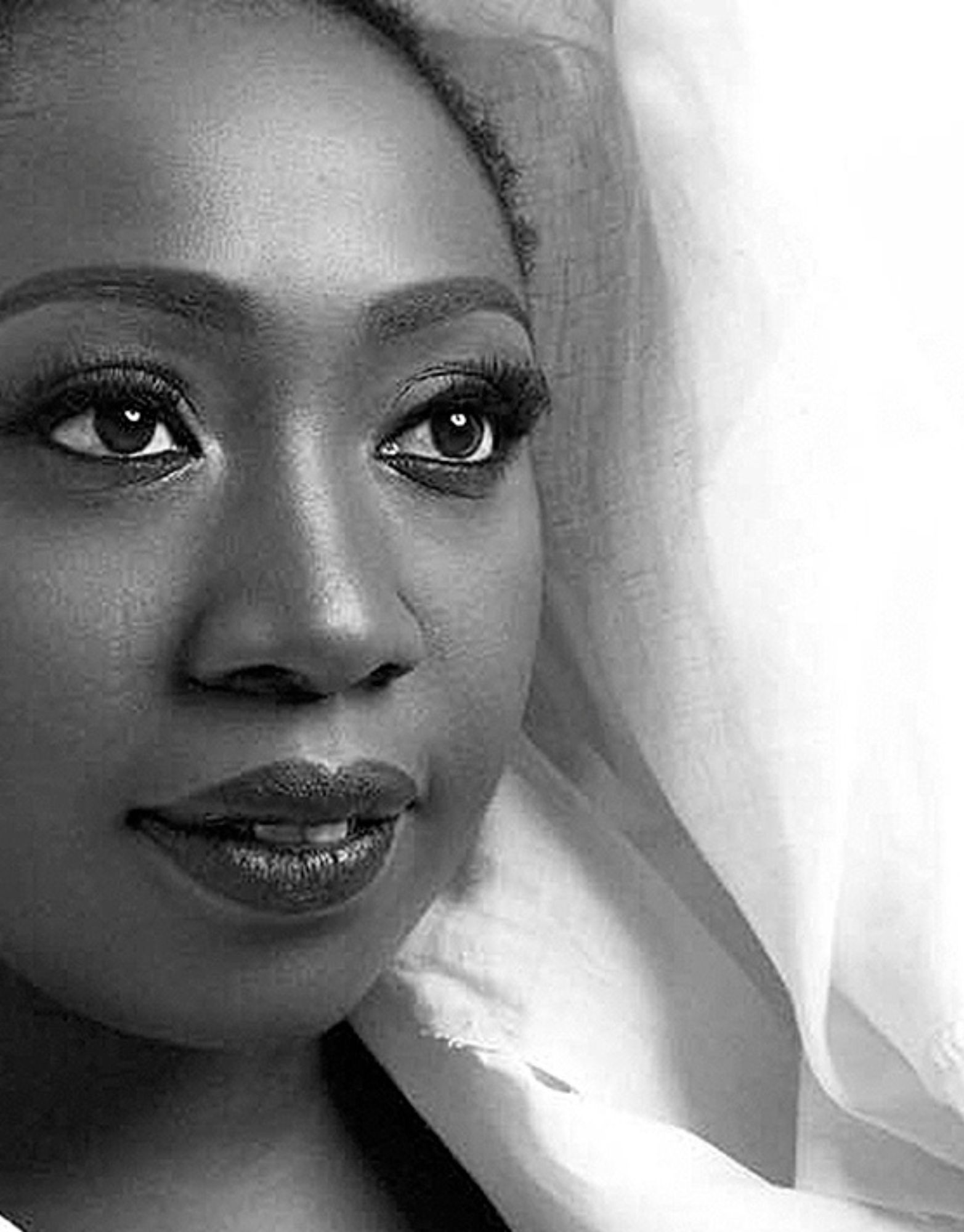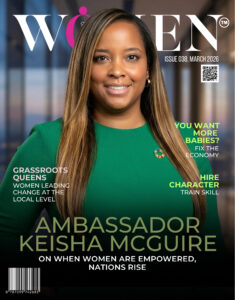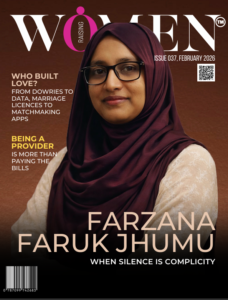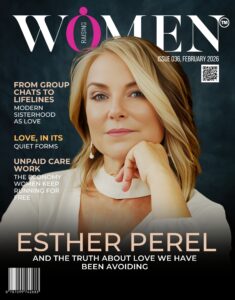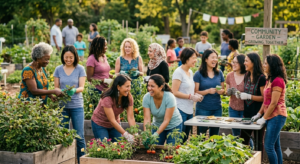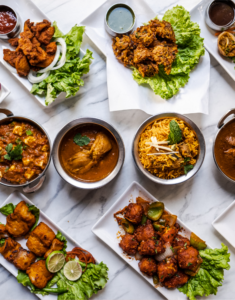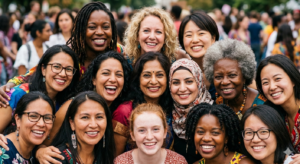Owning the Mic & Shaping the Story
By Uganze Chikezie
In a world where headlines fade and narratives are manipulated, Stephanie Busari’s voice remains consistent and anchored in clarity, conviction, and a fierce commitment to Africa’s truth. From her trailblazing reporting at CNN to her groundbreaking initiatives like the Stephanie Busari Storytelling Academy and SBB Media, Busari has consistently redefined what it means to tell African stories. In this candid interview, she reflects on her journey from journalist to narrative architect, her battle against misinformation, and her relentless mission to equip the next generation of African storytellers to own the pen and shape their futures.
Q: You’ve spent over two decades telling Africa’s stories with nuance and power. What inspired your pivot from frontline journalism to launching the Stephanie Busari Storytelling Academy and SBB Media?
After over two decades in global journalism, I came to a powerful realisation: while it’s deeply impactful to tell the stories of Africa to the world, I felt an even greater calling to equip Africans to tell their own stories, authentically, powerfully, and sustainably. I wanted to move from simply reporting stories to stewarding them.
The pivot to launching SBB Media and the Storytelling Academy was really about building legacy and creating a pipeline of excellence and visibility for the next generation of African storytellers, especially women.
We can’t keep waiting for permission. It’s time to own the pen.
Q: In 2016, your work on the Chibok girls shifted global attention and sparked a national reckoning. What personal and professional impact did that story have on you?
That story lives inside me. It changed my life. When I obtained the ‘proof of life’ video for the Chibok girls in 2016, long after the world had moved on, it reignited international pressure and diplomacy. Professionally, it was a milestone. But personally, it cut much deeper. I couldn’t walk away from their pain. I couldn’t unsee the complacency.
That moment anchored my belief that African suffering should never be normalised and that it’s my mission to make sure our stories are told with urgency, dignity, and truth.
Q: Misinformation remains a global challenge, especially in emerging democracies. What have you learned about navigating truth in today’s media climate, and how can women safeguard fact from fiction?
In today’s world, truth must be actively defended, it’s no longer passive. We’re dealing with algorithms, disinformation, and echo chambers. And as women, we have a unique power to counter that. We are the keepers of stories, the nurturers of community knowledge. I always say: verify before you amplify. Become media literate. Challenge what doesn’t sit right. Truth is power. And in a noisy world, clarity is a superpower.
Q: You’ve consistently championed women’s voices in spaces that often sideline them. What do you believe still holds women back from telling their stories, and how can platforms like yours unlock that potential?
Many women still battle fear, the fear of being judged, dismissed, or misunderstood. And often, there’s a lack of access to platforms or simply a lack of belief that their story matters. That’s why I curated the book Her Story: Taking Root, Sparking Change to offer a supportive platform where women can find their voice, share their journey and stand in it boldly.
We don’t just teach storytelling; we teach visibility, confidence, and courage.
www.herstoryglobal.com
Q: From CNN to your entrepreneurial ventures, you’ve worn many leadership hats. What key lessons have shaped your leadership style, especially in male-dominated environments?
I’ve learned to lead with both steel and soul. In global media, and especially as a Black African woman, you can be underestimated. But I’ve never underestimated myself. My leadership is rooted in purpose. I listen deeply. I advocate fiercely. I’ve learned that presence is power and that you don’t have to be loud to be impactful.
Leadership, to me, is about elevating others while remaining anchored in your truth.
Q.You’ve launched a $100M fund to support African storytellers. What’s your broader vision for this initiative, and how do you hope it will reshape the continent’s narrative ecosystem?
The $100M fund is a bold declaration that our stories matter, and deserve to be funded at scale. For too long, Africa’s narratives have been under-resourced or controlled by outsiders.
This fund is about reclaiming our narrative sovereignty. My vision is to build a thriving ecosystem of African creators, filmmakers, podcasters, journalists, and digital storytellers, who own their intellectual property, receive fair investment, and shape how the world sees us.
We’re not begging to be seen, we’re building the structures to be unmissable.
Q: How do you personally balance the tension between being a public figure, truth-bearer, and private woman, especially in a world that often misinterprets strong, visible women?
It’s a delicate dance. I’ve learned to honour my boundaries. I share my work, my truth, and my purpose, but I fiercely protect my peace. Visibility comes with scrutiny, and strong women are often misunderstood. But I remind myself that my visibility is service, it’s for the women watching, the girls dreaming, and the systems that need disrupting.
I return often to stillness in the comfort of my family. It is where I recharge and realign. You can also find me in a swimming pool, it’s one of my happy places.
Q: What one belief anchors you when things feel uncertain, and what would you tell young African women daring to rewrite their own stories despite fear, failure, or rejection?
I believe that purpose will always find its way to impact, even if the journey is messy or slow. When things feel uncertain, I return to my “why.” That always gives me clarity. To young African women, I say: your fear is not the enemy, but your silence is.
Tell the story anyway. Start before you feel ready. Don’t wait for permission. Rejection is often redirection, so don’t take it personally.
Closing Reflection: What message, mantra, or mindset would you offer to women everywhere on how to honour their worth, build meaningful wealth, and safeguard their overall wellbeing?
You are your greatest asset. Protect your peace like a priceless heirloom. Pursue wealth like a birthright. And never apologise for taking up space. Wealth isn’t just about money, it’s about mental, spiritual, and emotional abundance. Say no without guilt. Rest without shame. Charge what you’re worth.
And above all, know this:
“the world benefits most from
women who are well,
whole, and wildly free.”

